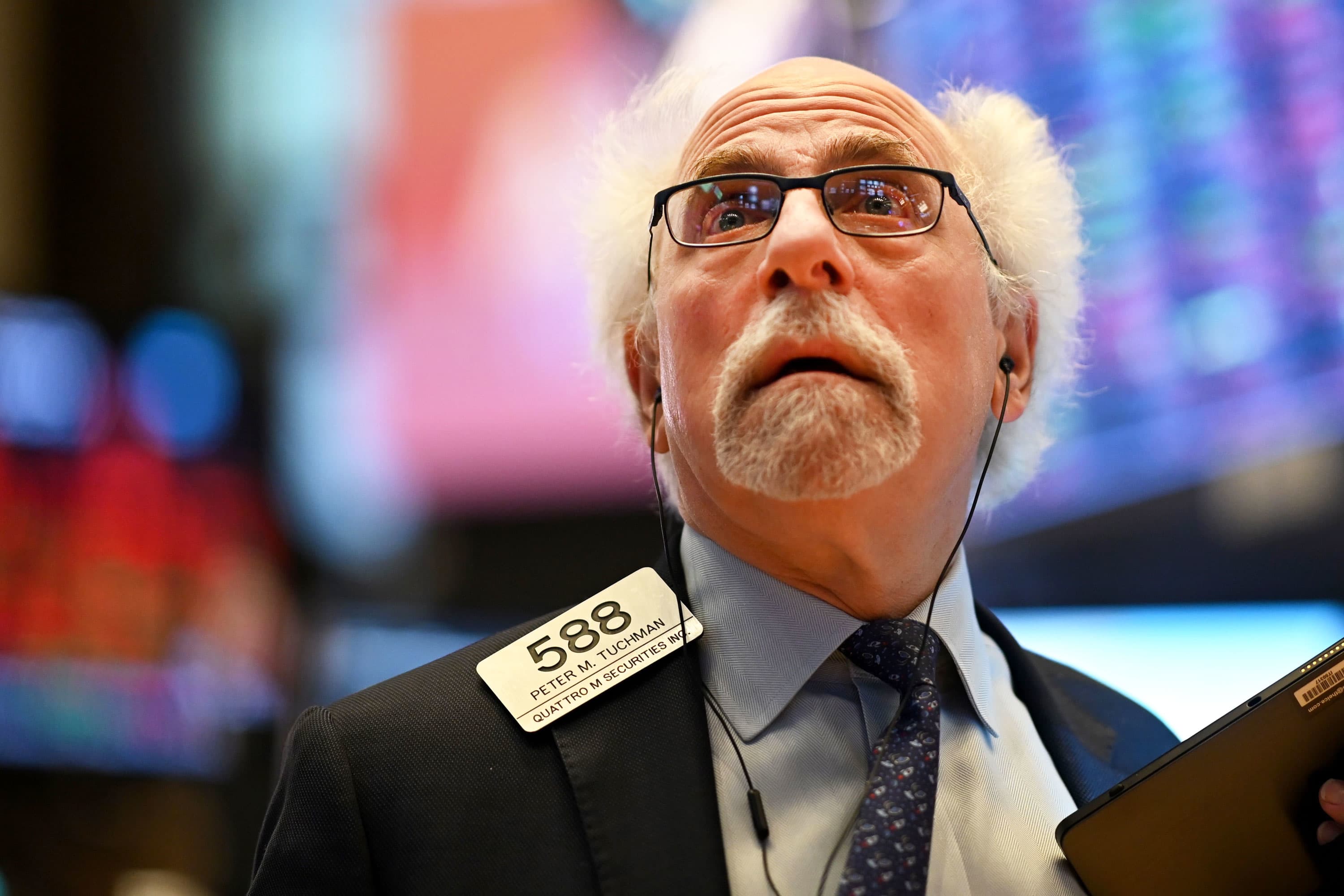
The end to the record-long bull market is now a reality. However, entering a bear market doesn't always mean a recession is upon us, history shows.
This week, the S&P 500 and the Dow Jones Industrial Average entered bear markets, ending their historic 11-year bull runs. A bear market marks a 20% decline from all-time highs. As a forward-looking mechanism, the stock market usually sends warnings about the economy before shrinking growth shows up in the data.
Still, there have been a couple of instances where recessions didn't accompany previous bear markets, according to data from LPL Financial going back to the S&P 500's inception.
"Now the good news is not all bear markets occur in recessions; in fact, when the economy has avoided recession, stocks have bottomed right around down 20% over the past several bear markets," said Ryan Detrick, LPL Financial's senior market strategist.
In 1987, the S&P 500 tanked 22% in the infamous Black Monday crash, suffering its largest single-day percentage loss ever. That bear market lasted for only four months and the U.S. economy avoided a downturn. The S&P 500's Thursday plunge of 9.5% was the the second largest ever, only next to the 1987 market crash.
Recessions also didn't occur amid the bear markets in 1961, 1966 and 1947.
Still 70% chance
To be sure, the majority of the bear markets in recent history — above 70% — were accompanied by a recession, according to LPL data. Additionally, the three most recent bear markets — in 1990, 2000 and 2008 — all coincided with recessions.
Fears of a recession have risen significantly on Wall Street as the coronavirus outbreak worsened drastically in the U.S. President Donald Trump has declared a national emergency over the pandemic. Major events have been called off for precaution, including the National Basketball Association who has suspended its season.
Not a technical one?
A fall in GDP in two consecutive quarters typically defines a recession. However, the National Bureau of Economic Research, which makes the official U.S. determination, declares a recession when the slowdown lasts more than a few months. It also considers other economic indicators including real income, employment, industrial production, and wholesale-retail sales.
Some economists believes the economic slowdown will only last a few months and the U.S. will eventually skirt a technical recession.
JPMorgan slashed its forecast for U.S. and global GDP further, now seeing negative growth in two consecutive quarters. The bank called for a "novel-global recession," but didn't expect an official downturn to be declared.
"Our forecast for a mid-year growth rebound would not fit the NBER criteria that recessions should last for more than a few months," Bruce Kasman, JPMorgan's chief economist, said in a note.
The bank expects a fading of the coronavirus outbreak to promote a recovery in activity into midyear 2020, followed by an acceleration in growth in the second half of the year.
Bank of America also believes the U.S. will only "flirt" with a recession in the near future.
"The economy will flirt with recession in the coming months with negative GDP in 2Q, we believe," Michelle Meyer, Bank of America's chief U.S. economist, said in a note. "Growth is expected to remain soft in 3Q with recovery starting thereafter. An aggressive policy response is needed."
Bank of America cut its view of global growth due to the impact of coronavirus. For the U.S., the firm now expects GDP to grow this year by 1.2% from 1.6%. That is based on close to zero growth in the second and third quarters.
Ed Hyman, a widely followed economist on Wall Street, has called for a "virus recession" in the U.S. and slashed his U.S. GDP forecast to zero growth in the next two quarters.
— CNBC's Nate Rattner and Michael Bloom contributed to this report.
Subscribe to CNBC PRO for exclusive insights and analysis, and live business day programming from around the world.
"occur" - Google News
March 14, 2020 at 10:54PM
https://ift.tt/2xDyhzL
Not every bear market is accompanied by an economic recession, but chances are high - CNBC
"occur" - Google News
https://ift.tt/2UoDqVw
Shoes Man Tutorial
Pos News Update
Meme Update
Korean Entertainment News
Japan News Update
Bagikan Berita Ini















0 Response to "Not every bear market is accompanied by an economic recession, but chances are high - CNBC"
Post a Comment